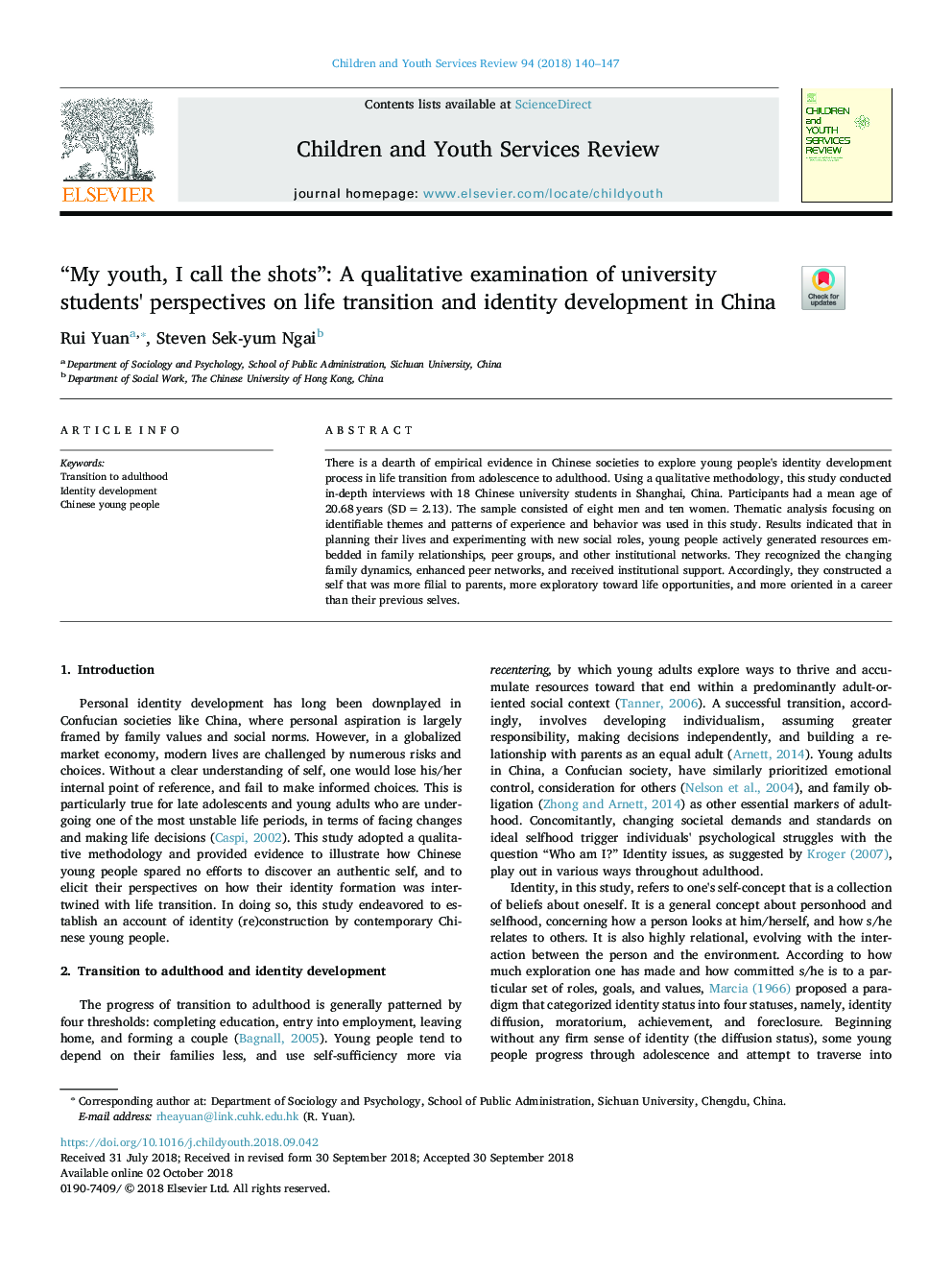| Article ID | Journal | Published Year | Pages | File Type |
|---|---|---|---|---|
| 11024054 | Children and Youth Services Review | 2018 | 8 Pages |
Abstract
There is a dearth of empirical evidence in Chinese societies to explore young people's identity development process in life transition from adolescence to adulthood. Using a qualitative methodology, this study conducted in-depth interviews with 18 Chinese university students in Shanghai, China. Participants had a mean age of 20.68â¯years (SDâ¯=â¯2.13). The sample consisted of eight men and ten women. Thematic analysis focusing on identifiable themes and patterns of experience and behavior was used in this study. Results indicated that in planning their lives and experimenting with new social roles, young people actively generated resources embedded in family relationships, peer groups, and other institutional networks. They recognized the changing family dynamics, enhanced peer networks, and received institutional support. Accordingly, they constructed a self that was more filial to parents, more exploratory toward life opportunities, and more oriented in a career than their previous selves.
Related Topics
Health Sciences
Medicine and Dentistry
Perinatology, Pediatrics and Child Health
Authors
Rui Yuan, Steven Sek-yum Ngai,
